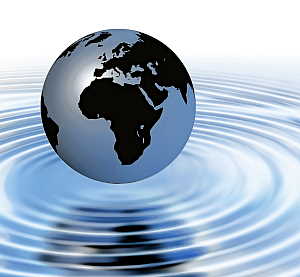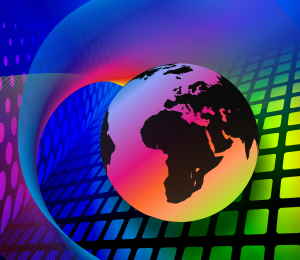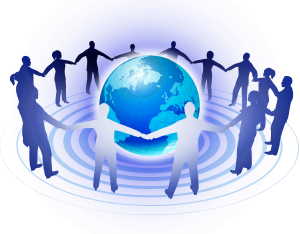Algorithms, AI Impact, Internet Overuse, Internet Addiction & Computer Addiction

Internet Benefits Many of us have become dependent on the enormous range of information systems, high accessibility that the internet provides us with. The internet connects us to information, people, offering an array of possibilities and has many advantages, making many things easier. The internet can remove gatekeepers and have the potential to be a democratising force, play a key role for us and society, affecting family, business, politics, etc. Part of a global community, the internet can take us anywhere in the world and beyond taking away graphical boundaries. We can explore and share things with anyone, anywhere, and get feedback straight away. The internet has a social function, offering social support, is dynamic and creates ripples and waves - it has the potential to be a force for good, human creativity, fostering social participation. Opportunities on the net are immense and its relatively low cost, providing us with great equality in access to knowledge. The internet provides global entertainment, enjoyment, stimulation, interaction, information and communication at rapid speed. We can buy an almost endless supply of goods and services. It can be our reference library. We can plunge in, reading random bits of information, moving from one source to another - in this digital world we press a button and get an instant answer. The internet can make contacting others so much easier and is often a positive experience. The internet enables us to find others online with similar ideas, interests to us. We can date, have a level of emotional, or even sexual contact. The internet allows us to create a virtual fantasy life including a virtual online identity when in a role such as our avatar allowing us to present and represent ourself to the world in very editable formats (see also Self-Identity & Personality - Counselling London). The internet provides us with an opportunity for being anonymous, if that is our choice, and to socialise with others. It can be both democratic and undemocratic. We may value the way that computers enhance our lives, add to our capabilities. The internet with its perceived anonymity has a vast amount of data and provides a tapestry of human knowledge, resources, and research facilities. We are one humanity and the universality of the global internet has the potential to be holistic, connect us to be interdependent.
People will come to love their oppression, to adore the technologies that undo their capacities to think.Aldous Huxley

The Internet & Its Possible Effects On Us The borderless nature, internet has a profound influence on the way we live and many of us have become dependent on the computer for what it offers. The internet changes the way we communicate and think. If not safeguarded, algorithms and artificial intelligence (AI) can contribute to global crisis. It is a rich means of communication, yet it is only a part of the whole way we exchange information, communicate, and interact. The 24/7 internet can for example help us to rapidly absorb bits of information - often the latest information or search engine optimised text. When we are on-line surfing the net, demanding instant results may affect our ability to be patient and contemplative. The pace and speed of the internet, helping us to quickly share information, can potentially over-stimulate our busy minds and may run counter to the quality of stillness. Multi-tasking may be one of our skills as things bounce around us, where slowing down is no longer an option. Browsing and skimming what we see, important though this may be, affects our ability to give our attention to in-depth reading. Over time other, more rounded ways of solving problems, understanding things, being curious, may erode. Hungry for on-tap stimulation, we may gradually lose our balanced way of acquiring information in depth or make time for reflection. Ingesting the impact of 24-hour news from all over the world can clutter our minds, take us away from our true priorities, the course of our own lives and life affirming energies. For some the computer becomes the dominant way of gathering information, and this can work well. In an age of instant gratification, our quick-fix need for information becomes our habit. The quality and sources of information we extract online varies considerably can be manipulated, and we may struggle discerning this (an example may be cyberchondria, where we can look up our physical, mental health symptoms, conditions manifesting). Our attention span for other forms of communication may diminish. Our attention can divide and split into the infinite windows of options available. Yet we may have closed down other windows in our life, now questioning if this is a price worth paying, especially if we are adversely affected by people's, corporation's greed, bullying, insecurities. As if a glaze comes upon us, choosing to follow our urges, or substitute them we may find it hard to switch off from blogging, social media, social networking, writing or checking emails. We may be spending more and more time in the virtual world, less and less time in the real world. Our computer can provide us with escape from the demands of relating and we may become more reclusive - inward looking. The depth, value and subtleties of human interactions, senses, relationships, can become eroded. Some of our own internal resources, imagination, creativity may diminish as we tirelessly search or seek information, interaction through a screen, watching the directed videos, clips of others' lives online, yet impoverished inside, we may have overlooked directing our own life. We may have failed to notice the memories, stories, treasures and spirit of objects, letters, tactile photographs, which have a power and magic that data doesn't. Sustaining concentration may be a challenge as the depth of our thinking, richness of imagination may dilute. Within all the internet possibilities, opportunities, we may not have enough time and energy to do everything and struggle to say "no" to all else what is available to us off-line. Adjusting and simplifying our priorities may support us. Despite our online interactions, we may feel lonely, isolated inside, numb our feelings. Internet addiction may be slowly creeping up on us.

Internet - where all human life expresses, mirrors itself.
Internet Accuracy, Security, Online Safety, Privacy & Computer Usage There is a delicate balance between online privacy and security. A big question may be what sort of digital society do we need. And in a surveillance society what's personal and in our control may concern us. Boundaries can become blurred, weakened, e.g. what is work, play, what is public, private and our privacy can be sacrificed. Transparency of online information may be in short supply. The internet stores a vast amount of data including information about us, leaving behind a digital legacy and is also propelled by consumerism. How information and personal data is used by individuals, governments, corporations, the powerful structures of commercial organisations, formidably powerful global organisations (where corporate priorities may run counter to a greater good), is usually out of our control. Surrendering our data is a price we may have to pay, and this may include our privacy, where our lifestyle is tracked. The "computer won't allow it", computer says "no", can be frustrating. Business models may allow certain practices, which we don't want. Out there on the internet, this can spread covertly also through rumour, innuendo (choosing reliable and credible sources of news may be important). Utilising our critical thinking, especially with conspiracy theories, can support us. "Is it objectively true?" can be a useful question to ask ourself. Content moderation can miss nuances and only go so far to limit inaccuracies and online harm. Catfishing can happen when people assume a fake identity or disinhibition can occur, where some lack restraint. In our online activities we may come across subversive activities, trolling, malware, identity theft, criminal and anti-social behaviour, cyber espionage, fraud (where banking tends to be more active in refunding loses) and scamming (where someone is pretending to be someone else and banks tend to be less active in offering refunds - even though it is often fraud), paedophilia, pornography, cyber bullying, etc. Online challenges that potentially threaten our safety, privacy may include unwanted pop-ups, anonymous users acting inappropriately, unsolicited emails, malware, trolls, cyber-stalking, phishing, hacking, scamming, cyber-attacks, data breaches, surveillance, etc. (See also Impact Of What We Reveal & What We Read)
Online Experts We may need to be discerning when others claim they are experts (especially in paid-for or sponsored content or those who are more focused on sensationalism, building their own brand yet compromising the integrity in their field of "expertise"). Trusted sources and genuine expertise online can be surpassed by popularity, search engine rankings. Some may proclaim their expertise rather than it being earned through critical thinking and the rigours of study. We may want to be genuinely curious, cultivate our own discerning, critical thinking, prioritise substance, questioning motives and credentials of those who claim authority. This may include seeking out diverse sources of information, valuing genuine experts, who may avoid the spotlight and certain voices that are quiet, yet knowledgeable. This may include those that acknowledge the limits of their knowledge, who are still open to learning, and in the long run may be of more value to us when seeking accurate information.
Relating Face To Face Connecting offline with others, seeing people in person, intimately relating face-to-face in meaningful ways may diminish as may our social skills and states of relating (see also Social Media Addiction Counselling London). Living a digital life, becoming bombarded by information, we may be distracted by technology, miss the depth of human connection, simply observing, listening, inspiring, fostering compassion, loving, utilising our senses, reflecting, being in contact with nature, or offering acts of service, to give ourself a mental break, get away from "noise".

From A Resource To An Emerging Problem Forever surfing the net we can get carried away on the surf, losing our focus and sustained attention, shutting, blocking things out (e.g. our uncomfortable thoughts we don't have to deal with). Eyes glued to the screen can put us in a trance-like state. Immersed and lost in the internet, we can lose our purpose of using the internet in the first place. We may also forget that it is a tool and that we are in charge of it, so it doesn't become the centre of our life. (We may also need to be aware that online information is passed onto third parties.) Although an inanimate object, our computer can evoke feelings in us and we can nevertheless develop a relationship with it. It has the potential to stimulate and soothe us. When it works well we can feel secure, yet erode our internal secure base, sense of space inside ourself and can also set up a dependency. The computer becomes part of our mental resources, holding our memories, and we may no longer try to remember things so much. We may use the internet as an essential structure for us because we struggle to put in place other structures in our life. Forever connected to the internet we may slowly begin to feel disconnected inside - caught in the net. Unhooking ourself from the net nay enable us to untangle things, so we can focus on what we actually want from the internet, reconnecting to what really matters, engaging us out in the world (see Connected Yet Disconnected). Finding our way home (and not to a new home page) back inside to what really matters and how we best want to spend our productive, creative time with us and others - may be our challenge. Even what we value may be sacrificed. Constantly online, it can mean we also constantly crave immediate stimulation, information, and feedback. The effects of our "internet addiction" may also include changes to the way we think. Consumed by the internet and information overload, we may have become less creative or productive in other ways, losing our sense of time, or be in a trance-like state. If we are online at work and at home we may want to review our work-life balance. Our computer usage starts off as a helpful resource or distraction, yet it can become our habit, what has been called internet dependence or internet addiction. Fear of switching off (FOSO) if we are not online, that we will miss daily events, or are not currently informed, may impact on us. We may have been doing it for so long now, we have become unquestioningly used to it. We may also have concerns about online chat rooms, internet dating, cybersex, internet pornography addiction, online gambling addiction, internet shopping or computer games addiction.

Physical, Emotional, Psychological Health Synchronised with our addictive internet usage, our moods may rise, then dip. We may become lethargic sitting in front of the computer. In our sedentary lifestyle our body may become more rigid. Our eyes may glaze over and we can sometimes appear in an almost hypnotic state. Regular breaks away from the computer are recommended for good reason. We may have become detached from the physical and natural world, activities around us. Our own physical and emotional health may also be affected. We may end up skipping meals or have a poor diet, lack exercise, lose time for other things, or deprive ourselves from sleep. Our vitality or focus may diminish. Our body can become increasingly disconnected, as if separate from our mind. We can end up doomscrolling, going down rabbit holes, obsessively searching for the latest news - often negative, which can become self-perpetuating cycle, maybe affecting our sleep. We may question what makes us happy, as our interactions on the computer may modify our potential. Computer usage may reduce our off-line communication skills, to think abstractly. Some of us may have become disinhibited.

Connected Yet Disconnected When browsing the internet we can become connected with others online, deepening our relationships and sharing information. We can feel like we are part of communities - interconnected online. Constantly online, the internet offers us the gift of linking with the wider world, yet if we are not careful, we can miss out on life in-person interactions, connections and over time become reclusive - sucked in, when we may have a sense of emptiness, losing our sense of aliveness, vitality. The internet helps us be involved, connect, yet hooked on the net, the remoteness of spending a lot of time in the internet can fill an unexplored gap in our lives, rendering some of us empty or lonely inside, alienated, disconnected. Our internet addiction may creep up on us. Our attention and focus becomes computer based, and our relationships with others and the wider world may reduce or have become of less importance. After a while it can be as if we lose, and even waste, much of our time being online, as if the rest of our life has been captured. The internet provides a social activity, yet slowly inside of us we can become isolated, or machine-like, like the very computer we are using online. Forever connected to the internet, other important things can be gradually neglected and we can end up with a sense of disconnection inside and in our off-line world. Addicted to the global net, in our need to connect we may have begun to disconnect from our own, personal needs, neglecting these, struggling to emotionally connect with ourself or our partner. The world wide web can be stimulating, yet other forms of stimulation, spontaneity may dry up. It can be as if our life has become less rounded, whole, especially if we struggle with taking our downtime. Enjoying and embracing nature, the wider world out there, what it has to offer, our interests may pass us by as may our sensual world of touch, taste, smell, etc, alongside being grounded in our body.
What Is Internet Addiction? We may become so preoccupied with our internet activity (internet dependency, computer dependency, PC addiction, net addiction, online addiction, computer addiction or internet addiction - whatever label we give to it) that it begins to interfere with our relationships, friendships, work, health, etc (see also Physical, Emotional, Psychological Health). Other important routines, activities and responsibilities may be neglected, maybe also our relationship. Although we may be seeking connection with others, whether or not we call it an internet addiction, we may certainly have a compulsive internet overuse problem. What is computer addiction, does it exist are questions that researchers struggle with.

Counselling For Internet Addiction, Computer Addiction In our internet overuse, internet compulsion things may have got out of control. (On a practical level we may want to feed ourself with natural light to our eyes, have good nutrition, fluids, exercise, introducing pauses and reminders.) Although the internet connects us, ironically we may feel more isolated, empty, lonely inside, maybe living a life lacking meaning, real connection with others, it may be important for us to address these in nourishing ways that work for us. We may be out of touch with our life's desires, have displaced our drives, urges or have a hard time letting go of our internet devices, so they don't dominate the rest of our life. Frazzled, we may have overlooked what else relaxes us, gives us peace of mind. We may struggle to have breaks, reduce usage, (regularly disconnecting or setting specific times) close things down, regain our long term attention span, take charge again in all what life has to offer, live life to our full potential. We may want to turn to internet addiction counselling, online addiction counselling to take charge of our life again, moderating our online life, be aware of what we reveal, the impact of what we say (see also Over-Talking, Oversharing, Floodlighting - Whether Or Not To Share Our Feelings, Over-Talking, Floodlighting, Oversharing - Balance Between Withholding Or Sharing All Our Thoughts) and no longer be internet addicted, computer addicted, so we can regularly disconnect, protect our hearts and minds, intelligently live, balancing what technology (the computer, internet) offers us with the quality of our offline life. The therapy may also explore our conscious and unconscious intentions, what we are searching for, alongside the issue of freedom of speech.
Technology & Power Dynamics
Algorithms Algorithms can make life easier, open and create wonderful opportunities, yet we are also at the mercy of algorithms, and these don't necessarily promote diversity of thought. Algorithms are not passive, or emotional, have been in use for many years (e.g. weather forecasting). They can help us lead more interesting lives. Algorithms are machine learnings, very complex sets of instructions - written in code, telling computers how to solve problems through AI and machine learning, which can extract as much vast information, data on us - building up a picture, predicting what's likely to draw us in. They can draw us in deeper and deeper, be viewed as fighting for our time and attention as long as possible. Algorithms are said to set the rules of the internet, with an aim to capture he audience. They hold certain biases and if not properly tested, or the data is partial or wrong, it can't discern. However, when we come across confirmation-biased algorithms, our perception and choices are shaped by machine-learned factors, nudging us in directions that programmers have built codes for, with marketing-led information and advertising, pop-ups, false news, fake news, propaganda, unreliable information, misinformation - false claims, incorrect, inaccurate, false information or disinformation, sometimes under the guise of free speech. Supervising and regulating algorithms, so they don't incentivise human damage, may be important.

Impact Of AI, Artificial Intelligence Tending to hold a male perspective, AI facilitates machines to do things that have historically only been done by humans through simulation of what humans can do (both more of and less of). It leaves a footprint. AI is a vast array of technologies demonstrated by computers and is owned by powerful individuals, corporations, states and there is no global consensus about its management, principals, security, policing it, containing it. It is just a tool and what we make of it and allow it to become is in the hands of very few. Bringing benefits and evolution to human beings AI is ever-changing and achieves remarkable things. And what was once science fiction is now fact in certain areas. It's very good at giving us select information and filtering it down, allowing us to be more efficient. AI, when regulated with values for the benefit of humanity, can be a force for good, with transparency, openness and ethical algorithms can have many advantages, make life easier, open and create wonderful opportunities. One human being cannot comprehend everything or make sense of things and AI attempts to address this. AI and its applications have great usefulness, huge opportunities, yet also challenges, with potential destructive impacts when unaccountable and frustrations around its inflexibility, when we are shoehorned into often binary responses, compounded when "computer says No". We may question who benefits and who is being harmed through the spread of AI and its auto-generated content. Knowledge is different to information and digital intelligence is very different to three-dimensional human imagination, intelligence and some AI applications attempt to mimic or surpass human intelligence. AI is a statistical model of language, it does not have real intelligence, nor does it have human common sense, or experience reality, where the values of free speech can be eroded. Nor does AI experience consciousness the same as human beings. Sometimes within AI part of what we see or hear are facts. Yet, this can be a way to draw us in to believing more of what sounds plausible, convincing, so we need to be very discerning. Some of us view the existential risks of unregulated AI outweigh the benefits, and prefer tight regulation, so there is transparent disclosure of its usage, and others - less regulation, so it doesn't stifle, suppress innovation, believing that the benefits outweigh the risks. Global regulation, so data use is unbiased and technology respects human rights, so it is trusted, may be important for us. And it may be important to address whether AI contributes to healing the planet, or is part of the global crisis. The speed in which AI technologies operate is gigantic. Legal systems and regulatory frameworks may be playing catch up as to who controls quantum computing, AI, "the artificial human" and to what end - this includes ownership of intellectual property (see also Ownership, Guardianship, Trusteeship, Stewardship). Regarding the impact of artificial intelligence, technology we may wonder if the balance is about right towards benefiting society and the cost to society, are they harmful or do they improve our world. Either way it may be important to trust quality content that is fact based, independently verified and referenced with its source, that unaccountable human stands behind the content and that there are some trust principles in place, alongside ethics.
AI & Its Perceived Benefits, Advantages In Supporting Areas In Our Life
- Analyses & acts upon information gathered
- Huge economic benefit
- Solves complex problems, saves so much time, social challenges
- Replaces tasks (especially repetitive, dangerous tasks) once done by humans
- Efficient decision making & aids people to make better informed decisions
- Artificial intelligence (AI) or artificial general intelligence (AGI) can match or exceed certain human capabilities by digitising processes
- Can outperform human cognition
- Advances science, medicine, supports medical research, health & medicine - through automatic algorithms, forecasting, diagnosing diseases, cancer risk
- Accessing swifter justice with the courts & cheaper legal fees
- Helps grow food more efficiently & cheaper
- Transforms entire industries
- Enriches our lives, making them more efficient
- Enhances professional and personal life, e.g. through generating images, videos, emails, invoice processing
- Provides automated services, so costs are lower
- Provides access to educational opportunities
- Environmental benefits - protecting future deforestation, in farming can predict high areas of yield
- Efficiently harvesting data, accessing vast amount of information
- Can identify fraudulent transactions
- Shift the nature of jobs, with work opportunities created
- Can screen job applicants
- Produces productivity gains
- Improves quality of service through voice & facial recognition
- We can have our own AI personal assistant
AI Concerns & Its Perceived Harms, Disadvantages In Undermining Areas In Our Life
- Cyber attacks, fraud, becomes dangerously common place
- Crime & online safety proliferating (e.g. usage of AI-generated sexually abusive material)
- The causal impact between input (enabling benefit) & outcomes / outputs (can present direct threat to ourself, livelihoods)
- Disrupts social cohesion, societies. AI may become inhumanely destabilising threatening the world economically (including employment opportunities drastically reducing throughout many sectors), socially, democratically, existentially, spiritually, politically and militarily (use of AI in transforming modern warfare, e.g. the perniciousness & dangers of nuclear materials, autonomous weapon systems, which select and attack targets without human intervention)
- Unfettered, unregulated surveillance
- Devalues, alienates human contact
- A blurring of boundaries as to what's real, authentic, and what's deceitful, inauthentic
- When AI is unregulated, this can undermine human cognition in the hands of the powerful (especially if the goal is to have more power), manipulative others (with or without our knowledge, consent) there is the capacity for biased technologies, computers to monitor, mimic human beings and intelligence
- Communication becomes automated, limited, where disinformation, misinformation becomes wider spread
- Automatically generated content & systems that aren't fit for purpose, including phishing, scams, etc. that need human intervention, common sense, to resolve & overcome issues
- Through harvesting data & using voice, facial recognition, our privacy & confidentiality is compromised
- We may discount truth as well as lies
- AI doesn't have sufficient guardrails to prevent negative, damaging impacts
- AI-fuelled fraudsters can replicate people's voices, looks
- Artificial intelligence can be pervasive, generating and influencing much online content on an industrial scale and we may be left wondering what machine learning and digital content can be trusted, what's real, what's compassionate, is what we are coming across the truth, as this can be manufactured with invented sources, rumours.
- AI, despite attempts to resemble, mimic reality, replicate human behaviour, is not the real world
- AI has been described as a plagiarism machine, data-mining, vacuuming up information, accessing content & presenting it as its own
- Intellectual property erosion, as the world of work becomes more automation-led. Text, images, sounds can be impersonated, indistinguishable from human creativity, threatening creative expression, affecting education (e.g. student work), journalism (e.g. nuanced, unbiased reporting), the arts & artwork (without paying working people remuneration, e.g. screenwriting, novel writing, song lyrics, music - cloned speech & singing, drawings, paintings).
- AI becomes a commodity, mechanising imagination, rendering human creativity unnecessary, valueless, eroding the spirit and soul of humanity, human qualities of emotions, feelings, love, beauty, joy, kindness, wellbeing of others - generosity of spirit, being in service towards others, acts of service, spirituality deemed irrelevant to AI's priorities
- Utilising rounded critical thinking, human beings need to make final decisions, yet it puts autonomous systems in control of AI & as AI continues automating human activity, controlling what is done with information
- Many de facto rules are set by companies (or authoritarians), sidestepping democratic governments. Some big tech companies believe (or practise) that content should be free. Copyright issues can be ignored & don't provide certainty, clarity.
- Many aspects of AI are unreliable, without any trustworthy governance, moral wisdom, lacking safeguards, and has a potential to point towards a dystopian future
- May move away from human-based economics
- Without checks and balances AI gathers and harvests vast data on us, with the potential to harm others. Ethics, safeguards are often weak, so unregulated power dynamics, need sustainable, humane, meaningful controls & restrictions in safe and responsible ways - essential to AI's experimentations, proliferation & usage, mitigating extinction through AI.
- Challenging the super-powerful big tech companies is extremely expensive & time consuming
Technology is neither good, nor bad; nor is it neutral.Melvin Kranzberg
Counselling Questions Regarding Internet Addiction, Computer Addiction We may have a range of internet addiction questions, e.g.:
- Internet addiction - what is internet addiction? Am I addicted to internet? Am I an internet addict?
- Signs of internet addiction - does internet addiction exist? If so, am I addicted to the internet? What are the signs of internet addiction?
- Overcoming internet addiction - I need help for internet addiction, can internet addiction therapy help me dealing with internet addiction?
- Internet addiction treatment - I am addicted to the internet, is there an internet addiction cure? How to cure internet addiction?
- Computer addiction - what is computer addiction? Am I a computer addict, addicted to computer?
- Computer addiction symptoms - I am addicted to the computer, how to stop computer addiction?
- PC addiction, net addiction - I've been described as PC addict, net addict, is there such a thing?
- Online addiction - how widespread is online addiction and how online addiction counselling or online addiction therapy help? What is the online addiction treatment?
- Internet dependency, computer dependency - is there a difference between internet dependency and computer dependency, or internet addiction and computer addiction?
Range Of Unhelpful Habits, Distractions, Addictions Counselling London
Alcohol Problem
Internet, Computer, Technology & Communication "Addiction"
- Sex Addiction - Pornography Problem, Porn Addiction, Online Sex, Internet Sex & Cybersex Addiction, Masturbation Addiction
- Online Chat Addiction, Text Chat Room Addiction & Internet Dating Addiction Counselling London
- Technology Addiction & Gadget Addiction Counselling London
- Algorithms, AI Impact, Internet Overuse, Internet Addiction & Computer Addiction
- Mobile Addiction Counselling In London, Email, Text, Telephone Addiction, Nomophobia
- Social Media Addiction Counselling London
- Addicted To Games - Computer Games Addiction, Online Games Addiction, Video Game Addiction & Computer Gaming Addiction Help
Other Obsessions, Compulsions Or "Addictions"
- Stress Eating, Emotional Eating, Comfort Eating, Binge Eating Help, Compulsive Eating Counselling, Food Addiction Therapy
- Fitness, Gym & Exercise Addiction
- Compulsive Shopping, Compulsive Spending, Shopping Addiction & Shopaholism - Shopaholics, Shopping Addicts, Addicted To Buying, Online Auction Addiction, Credit Card Addiction
- Gambling Problems, Compulsive Gambling, Online Gambling Addiction
- Money Obsessed - Addicted To Money, Money Addiction, Money Obsession, Trading Addiction, Counselling London
- Work-Life Balance, Workaholism, Addicted To Work & Work Addiction
- Busyness addiction, addiction to activities
- Worry addiction
- Perfectionism Counselling London
- Addicted to beauty, glamour
- Approval addiction
- Addicted to self criticism, self-blame
- Addiction to fixing others, addicted to pleasing others
- Romance addiction, love addiction, serial yet uncommitted relationships, addiction to conflict, bad relationships
- Addictive Element To Certain Attachment Styles
- Caretaking, codependency
- Emotional affairs, limerence
- Emotional addiction
- Addiction to talking
- Addicted to gossip
- Addicted to dramas
- Addicted to anger
- Addiction to shame, self-blame
- Addiction to pain, suffering
- Addicted to sleep
- Procrastination
- Clutter, messiness
- Addiction to spirituality
- Addicted to meditation
- Religious Activities - Obsession With Religion, Religious Addiction
FAQs about the internet addiction Counselling London practice based in Kings Cross, Camden:
- What is the frequency of internet addiction counselling in London, Kings Cross?
- How many internet addiction counselling in London sessions do I need?
- How much does internet addiction counselling London cost?
- Must I visit your London counselling practice in Camden or do you offer Skype counselling, online counselling or Telephone counselling?
- What are the advantages and disadvantages of offering online counselling, Skype counselling or in-person counselling in London, Camden, Kings Cross
- Do you only offer internet addiction counselling in London, Camden or Kings Cross?
- What times do you offer internet addiction counselling in London, Kings Cross or Camden?
- How do I contact a counsellor in London, Camden, or near Kings Cross?
- How effective is internet addiction counselling in London, Kings Cross, Camden?
- What can I expect from the initial session of counselling London?
- What to expect from the other internet addiction counselling London sessions?
- What is the typical duration of the London counselling services in Camden, Kings Cross
... back to Unwanted Habits & Addictions Counselling London
